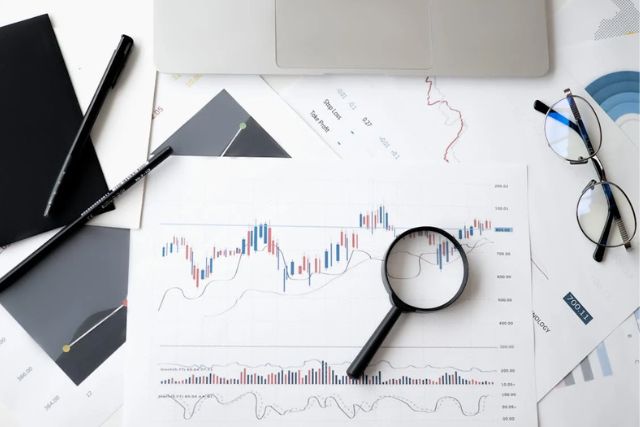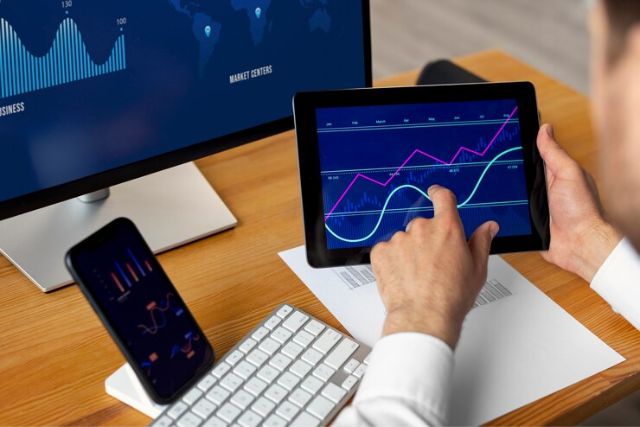The trading where quantitative methods and algorithms to execute strategies are included is quantitative trading. This has a broad set of uses a typical example might be a trader using a mathematical model to take a position on what an asset “should” be worth before carrying out a trade. What is Quant trading this is simply designed to take the information the market may be missing, such as. What happens to a company or an industry when interest rates move in a particular direction.
However, this is only one form of quantitative trading and is often performed by hedge funds or investment banks. At IMC, quantitative trading is used for what’s known as “market making” to provide liquidity to the market. This keeps the markets running smoothly, especially when things are volatile or if the market is small in scale.
What Is Quant Trading According To Research:

In today’s fast-changing landscape, mathematical analysis is explaining the world around us, and quantitative techniques are becoming ever more widespread. Quantitative trading rises, no longer dominated by fast-talking Wall Street brokers. To apply their skills and make things happen like top mathematics, statistics, computer science, engineering, and economics graduates are working. The world of finance is now a highly diverse environment.
What Is A Quant Trader?

The specialized trader who applies mathematical and quantitative methods to evaluate financial products or markets. They can find trading opportunities and calculate risks in this way.
How Does Quantitative Trading Work In Practice At IMC?
IMC uses quantitative strategies to continually provide two-sided quotes as a maker. This means that in deciding whether an asset is over- or under-priced, IMC provides a price to buy and to sell for each given asset.
What Is Quantitative Research?

While quantitative traders have a more operational role, quantitative researchers build and maintain the models and algorithms used in trading. A trader uses the algorithms to execute a strategy and has the discretion to change the parameters as they see fit. However, if a strategy isn’t getting the desired results for some reason, a researcher can step in to see what’s going wrong. He or she can educate the trader or improve the algorithm by either changing its behavior or augmenting it.
How Do IMC Use Algorithms To Carry Out Quantitative Trading Strategies?

IMC generally uses algorithms :
First Is Valuation:
To make things easier for market participants, IMC discovers and aggregates the positions of buyers and sellers on several different exchanges. Valuation algorithms figure out the price of an asset based on the information provided by these exchanges and then convert it into the right buy and sell quotes.
Second Is Position Management:
Although IMC doesn’t take a set position on an asset’s value, it maintains a running inventory of stocks and options in order to always facilitate smooth trading. Holding these positions carries significant risk because subsequent price changes can easily leave a market maker out of pocket.
The Third One Is Execution:
Execution algorithms carry out trades and manage orders while taking market developments into account at all times. Many options, for example, depend heavily on prevailing stock prices, so when the stock price moves quickly, the option prices move with it. If there’s a big move and a trader isn’t fast enough to cancel an order before someone else executes, the market maker could lose money. Knowing when to cancel a buy or sell order is just as important as knowing when to carry it out. Execution algorithms instantly make these decisions.
Conclusion:
Quantitative trading requires more training and years of experience to understand. There is no doubt to say that quant trading is complex trading. But the world of quantitative trading is also an interesting , with new developments and applications.
Related Articles: